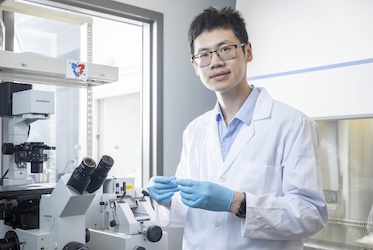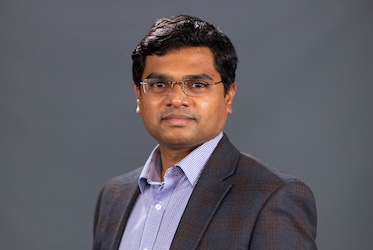
Kennesaw State awarded grant to research, develop advanced interstate tolling system
KENNESAW, Ga. | Sep 16, 2022
Faculty members at Kennesaw State University are embarking on a four-year project to develop a connected vehicle system for the Atlantic City Expressway in New Jersey, thanks to a grant from the Federal Highway Administration.
The grant is part of an $8.74 million award to the South Jersey Transportation Authority and is the largest award to date for Kennesaw State’s Department of Civil and Environmental Engineering. The goal of the project is to transform the Atlantic City Expressway into a smart and connected corridor using cellular vehicle-to-everything (C-V2X) technology, which uses either direct communication or conventional cellular networks, similar to 5G technology in cell phones.

Kennesaw State is more than 600 miles from New Jersey, but a connection through transportation engineering systems sparked the partnership. Assistant professor of civil engineering Parth Bhavsar previously taught at Rowan University in New Jersey and has remained close with the director of its Center for Research and Education in Advanced Transportation Engineering Systems (CREATES). Kennesaw State is working with Rowan University, Clemson University, the University of Alabama and West Virginia University on this project.
“This is the future,” said Sunanda Dissanayake, chair of KSU’s Department of Civil and Environmental Engineering and an internationally renowned traffic expert. “We have to be smart about transportation because the systems we have now will someday be insufficient.”
Bhavsar will lead Kennesaw State’s team of researchers to develop technology that will eventually remove the need for toll booths and stickers, like Georgia’s Peach Pass.
“Your car will be equipped with technology that will communicate with infrastructure devices and other vehicles,” Bhavsar explained. “This is important for anyone who drives because we can use this technology to decrease travel times and plan for the future of autonomous vehicles.”
The U.S. DOT wants the primary focus of the project to be deploying and evaluating compatible technology to support future connected and automated vehicles traveling on the Atlantic City Expressway (ACE). Bhavsar said his team will also develop an “infrastructure in-loop” for the entire length of the ACE, which will allow future researchers to gather travel data collected along the expressway and test new algorithms.
In addition, Kennesaw State researchers will develop pavement distress detection modules to monitor pavement performance over time, and the Burruss Institute will assist with user-perception surveys. Other faculty members involved in the project are research assistant professor of computer engineering Billy Kihei, associate professor of computer science and Director of Research Computing Ramazan Aygun, and associate professor of electrical engineering and Graduate Program Coordinator Sumit Chakravarty.
“The U.S. DOT also wants the team to perform a cost-benefit analysis to track where taxpayer money is going and the future return on investment,” Bhavsar said.
The research team will work on developing this technology over the next two years, while the third and fourth years will be for deployment and evaluation. They hope this technology can serve as a model to use around the country in the future.
— Abbey O’Brien Barrows
Photos by Judy Pishnery
Related Stories

Kennesaw State architecture, engineering students reimagine Asheville's devastated River Arts District

First-year Kennesaw State student, author recognized as versed local historian

KSU researcher harnessing digital twin technology to improve heart care

Kennesaw State University researcher, students explore clean energy storage solutions
A leader in innovative teaching and learning, Kennesaw State University offers undergraduate, graduate, and doctoral degrees to its more than 47,000 students. Kennesaw State is a member of the University System of Georgia with 11 academic colleges. The university’s vibrant campus culture, diverse population, strong global ties, and entrepreneurial spirit draw students from throughout the country and the world. Kennesaw State is a Carnegie-designated doctoral research institution (R2), placing it among an elite group of only 8 percent of U.S. colleges and universities with an R1 or R2 status. For more information, visit kennesaw.edu.














